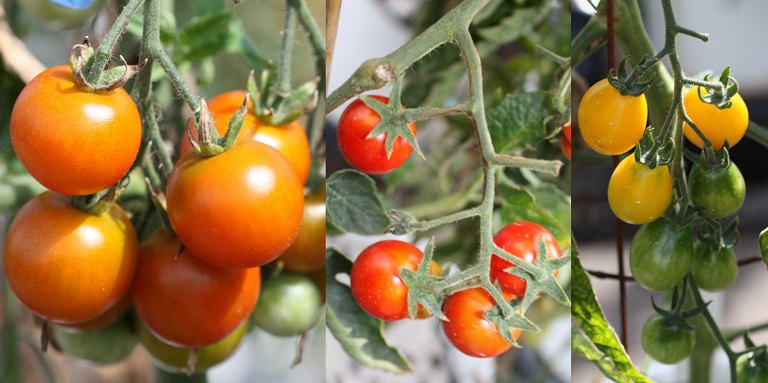Potassium Supply of Tomato Fruit

Influence on the metabolite profile
In terms of consumption and economic relevance, the tomato is by far the most important vegetable crop in Germany and worldwide. Although the vast majority of tomato production takes place in the commercial sector, the cultivation of tomatoes is also very popular in home gardens. The diversity of varieties has increased noticeably in recent years.
The supply of minerals such as potassium has a major impact on the plant growth and fruit yield, including tomatoes. Nevertheless, little research has been done on the effects of potassium supply on the tomato fruit metabolite profile and thus on fruit quality. Together with the working group of Prof. Elke Pawelzik (Chair for Quality of Plant Products, Department of Crop Sciences, University of Göttingen), the Department of Safety and Quality of Fruit and Vegetables of the Max Rubner Institut (MRI) investigated the following questions: Does potassium supply influence the central metabolism of tomato fruit and thus the concentration of important constituents such as sugars, acids or amino acids? Does an increased or decreased potassium supply lead to altered contents of vitamins and secondary plant compounds such as carotenoids? Are the effects dependent on the variety? Does an improved potassium supply of the plants also increase the potassium level in the fruit?
For this purpose, field trials were conducted in Göttingen with the three cherry tomato cultivars Primavera, Resi and Yellow Submarine and five potassium fertilization levels. In the tomato fruits, the contents of vitamins and secondary plant compounds were determined by HPLC methods after ripening, and the mineral contents of the fruits were determined by optical emission spectrometry using inductively coupled plasma (ICP-OES). At MRI, a non-targeted metabolite profile analysis was also performed using comprehensive two-dimensional gas chromatography-mass spectrometry (GC×GC-MS).
Overall, a substantial influence of potassium supply on the metabolite profile of the tomato fruit was demonstrated. Regardless of the variety, a clear correlation was shown between potassium supply and the concentration of certain fruit acids such as citric acid or other intermediates of the Krebs cycle. In the case of potassium deficiency, an enrichment of certain amino acids such as asparagine and amines such as putrescine could be observed. Potassium supply also partially affected the fruit contents of some polyphenols or vitamins. Particularly obvious and interesting was the fact that many effects could only be detected in the varieties Primavera and Yellow Submarine, while the variety Resi proved to be metabolically significantly more resistant to an oversupply or undersupply of potassium. It was also shown that the results of fertilization experiments cannot be readily transferred from vegetative plant organs such as the leaf or root to generative organs such as the fruit.
The results of this study were published in the scientific journals Plant Physiology and Biochemistry and Journal of Applied Botany and Food Quality.
Scientific publication(s)
F. Sonntag, D. Bunzel, S. E. Kulling, I. Porath, F. Pach, E. Pawelzik, et al., Effect of potassium fertilization on the concentration of antioxidants in two cocktail tomato cultivars. Journal of Applied Botany and Food Quality 2020 Vol. 93 Pages 34-43. https://www.sciencedirect.com/science/article/abs/pii/S0981942820306252
C. H. Weinert, F. Sonntag, B. Egert, E. Pawelzik, S. E. Kulling and I. Smit, The effect of potassium fertilization on the metabolite profile of tomato fruit (Solanum lycopersicum L.). Plant Physiology and Biochemistry 2021 Vol. 159 Pages 89-99. https://ojs.openagrar.de/index.php/JABFQ/article/view/13365

